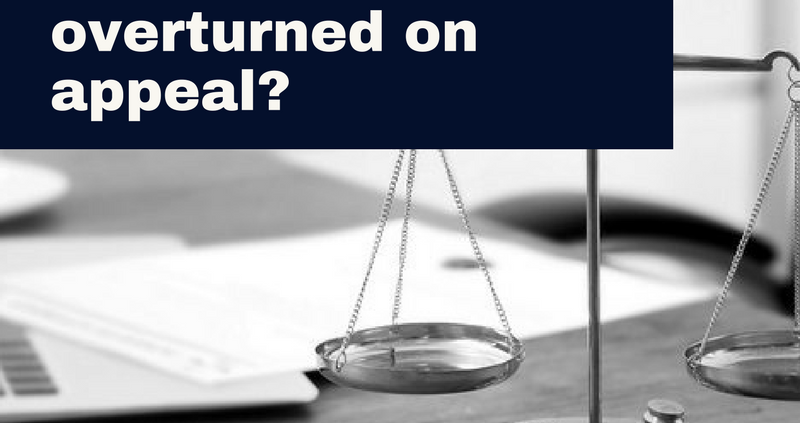If you or someone you know have been convicted of a crime, you have the right to appeal your conviction. When you appeal your conviction, you are asking an appellate court to take a second look at your case to determine whether there were any errors made before or during your trial that led to you being unfairly convicted or improperly sentenced by the judge.
One example of something you could challenge on appeal is if your attorney requested that the evidence seized from your house or your car be thrown out because it was an illegal search. If the trial judge denied your lawyer’s motion to throw out the evidence, you could appeal that decision to the appeals court.
How do you appeal your conviction?
The first thing you will need to appeal your conviction is an experienced criminal defense attorney to file the appeal on your behalf. Often, the trial attorney who handled your original case is not the same attorney who handles your appeal. That’s because not all criminal defense lawyers have experience handling criminal appeals – it’s important to have an experienced appeals attorney who knows how to handle the complicated appeals process. There are specific steps and strategies required to overturn a criminal conviction.
You want to make sure that the attorney you hire to handle your appeal will do the following things:
- File a notice of appeal with the trial judge that heard your case and sentenced you. There is a strict timeline on how long your attorney has to file your notice of appeal (30 days from sentencing in Louisiana state courts and 14 days from sentencing in federal criminal appeals), so you must not hesitate if you want to appeal your case.
- Your attorney should list in your notice of appeal each court date and motion from your case, including the trial, that you want to challenge so that a complete record can be made for your appeal. If a part of your case does not make it into the record that is made for appeal, it will not be considered by the appeals court.
- Make sure that the trial judge quickly signs your notice of appeal and orders the clerk to prepare the record for your appeal. The record that the clerk makes is usually made up of the transcripts from your trial and other hearings and motions from your case.
- Confirm with the clerk that the record is being prepared and is not being delayed.
- Once the record has been prepared by the clerk and sent to the Appeals Court (the legal term in Louisiana for when this happens is that the record has been “lodged”), your appeals attorney should confirm that the Appeals Court has the whole record and given you enough time to file your appeals brief.
- Research and write a brief to the appeals court detailing all the reasons why your conviction should be overturned because of errors or mistakes that happened during the trial.
- Respond to the prosecution’s brief arguing why the ruling and conviction should not remain in place. This is called a rebuttal or reply brief.
- Appear and argue before a panel of three appeals judges if the appellate court grants a hearing based on your appeal.
- File a writ to a higher appellate court if the first appeal is denied.
It’s important to remember that in order for your appeal to be granted, the appellate judges have to agree that an error happened during trial — and that this error was important enough to have impacted the fairness of the trial’s outcome.
What happens if an appeals court denies your appeal?
If an appellate court denies your appeal — which can unfortunately happen — there are other steps you can take to try to get your conviction overturned or sentence lessened.
These include:
- Appealing to a higher court: In Louisiana, that would be the Louisiana Supreme Court. If it were a federal case, it would be the U.S. Supreme Court. With both of the high courts, neither is required to hear your appeal.. They can simply decide that they will not consider your case without issuing a written opinion. You will just receive a notice that says “denied.”
- Filing for post-conviction relief: Post-conviction relief is different from your appeal process. You can only file for post-conviction relief after you have exhausted all direct appeal efforts. Click here for more information on post-conviction relief.
While the appeals process can be frustrating and confusing, the help of an experienced appeals attorney like Sam Winston can guide you through the process. If you or someone you love has been convicted of a crime and want to appeal the conviction, contact the law office of Sam Winston today.



